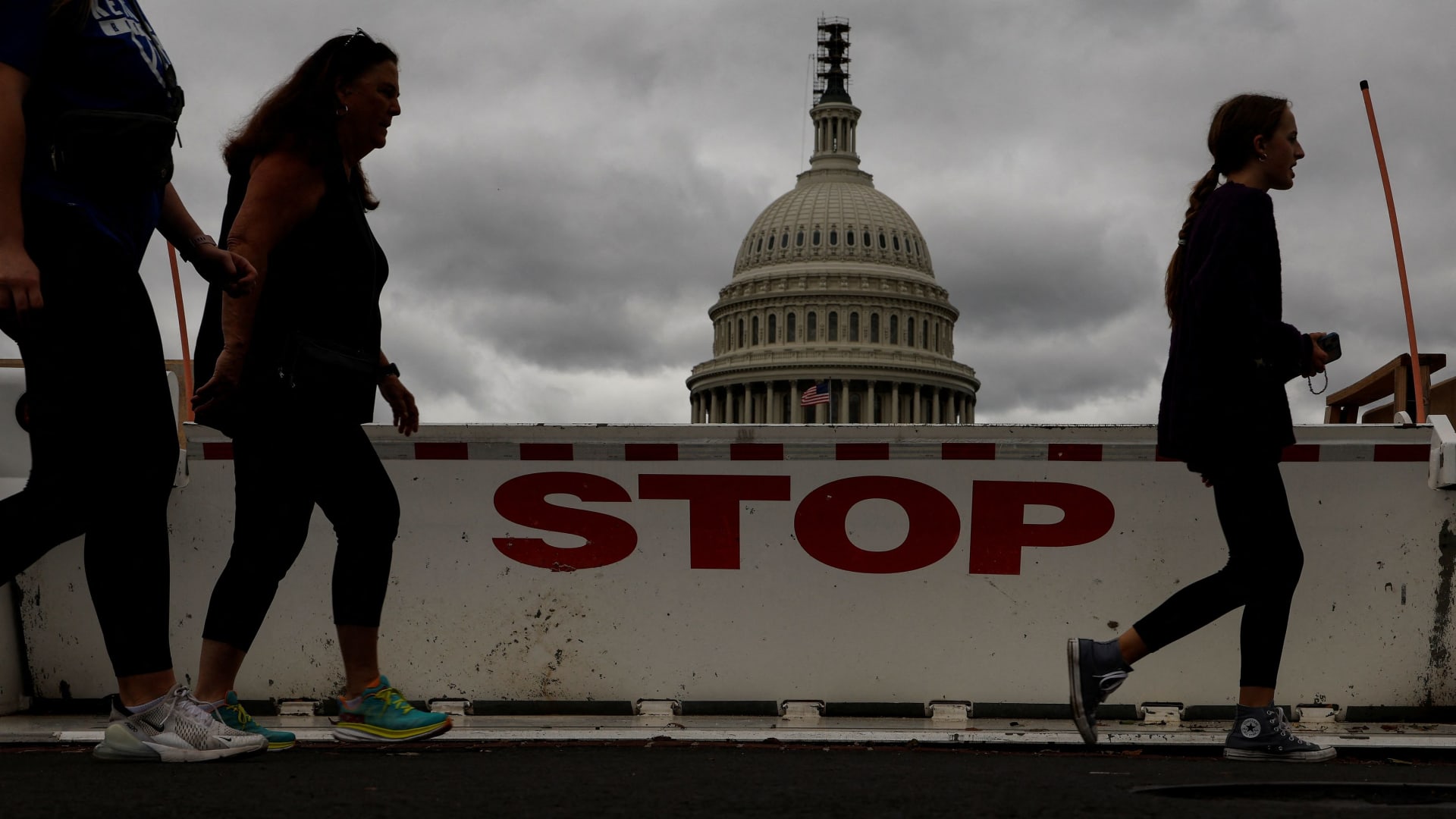Washington lawmakers are scrambling to pass a spending bill before an Oct. 1 deadline.
If they cannot agree, there will be a federal government shutdown.
For retirees who rely on Social Security and Medicare, the good news is those programs will mostly be unaffected since they are considered mandatory spending.
“Checks will continue to go out,” Bill Sweeney, senior vice president of government affairs at AARP, said of Social Security benefits. “The people whose job it is to get those checks out will be continuing to come to work.”
More from Personal Finance:
This purchase may be a ‘grenade’ to a well-planned retirement
3 money moves millionaires are more likely to make
What the Federal Reserve’s latest move means for your money
Seniors who rely on Medicare can also expect services to continue.
“Most seniors should be fine, both on the Medicare side and on the Social Security side,” said Maria Freese, senior legislative representative at the National Committee to Preserve Social Security and Medicare.
However, the longer a shutdown lasts, the more likely it is to affect Social Security or Medicare beneficiaries, according to Freese.
There have been 14 federal government shutdowns since 1980, according to the Bipartisan Policy Center. When that happens, federal departments, agencies and programs generally come to a stop, and employees who are not exempted from the shutdown are furloughed.
If a shutdown happens this time around, it may be brief, according to Bill Hoagland, senior vice president at the Bipartisan Policy Center.
“We may have some minor shutdown because time is just running out,” Hoagland said.
While a government suspension of a few days likely will not have an impact, Freese said, beneficiaries may start feeling the effects if it lasts around 30 days.
“Our assumption is that the most impacted part of Social Security is going to be the disability program,” Freese said.
While services related to the payment of benefits will be prioritized, other processes related to disability claims, such as hearings, appeals, quality controls and reviews, may be put on the back burner, she said.
“The backlogs in the disability program are likely to get bigger, depending on how long the shutdown lasts,” Freese said.
What Social Security activities may be affected
The Social Security Office of Budget, Finance and Management has outlined plans for a partial shutdown of agency operations if a lapse occurs.
It would take the Social Security Administration half a day to complete shutdown activities. While almost 61,900 employees would be expected to be on board before a plan is implemented, about 8,500 agency employees would be expected to be furloughed once a shutdown is in effect.
Activities to be discontinued in a government shutdown
- Benefit verifications
- Earnings record corrections and updates
- Payee accountings
- Prisoner activities — suspension
- Requests from third parties for queries
- Freedom of information act (FOIA) requests
- IT enhancement activities, public relations and trainings
- Replacement Medicare cards
- Overpayments processing
Source: Social Security Office of Budget, Finance and Management
Activities that will continue during a government shutdown
- Applications for benefits (including appointments, limited data exchanges and record corrections, including claims-related earnings, for mandatory benefits)
- Request for appeals (reconsiderations, hearings, Appeals Council)
- Post-entitlement actions (changes of address, Supplemental Security income living arrangement changes, non-citizen verification/changes, direct deposit, death inputs, processing of remittances for overpayments and administrative fees)
- Non-receipts and critical payments
- Payee changes
- Direct contact reinstatement of benefits
- Issuance of original and replacement Social Security cards
- Prisoner activities — beneficiary-initiated reinstatement of benefits only
- Program integrity workloads (redeterminations and continuing disability reviews (CDR) due to the extended availability of appropriations
- Critical information technology support for daily processing activities
- IT multi-factor authentication acceleration work
Source: Social Security Office of Budget, Finance and Management
